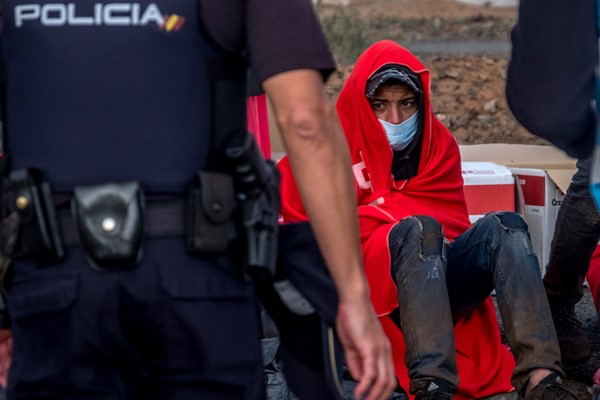Loading your audio article
GRANADA, Spain—In the Canary Islands, off the coast of Morocco, the coronavirus pandemic isn’t the only crisis that 2020 will be known for. Over the course of the year, more than 23,000 migrants arrived in the Spanish archipelago by boat from Africa—8,000 of them in November alone—while some 500 died attempting the journey.
The images of thousands of migrants stranded on beaches with no place to go evoked inevitable comparisons to another crisis, in 2006, when a total of 34,000 people landed on the archipelago in small wooden boats known as cayucos.
African migrants are being pushed toward this dangerous Atlantic route into the European Union mainly due to tougher immigration policies by countries on the Mediterranean like Italy and Greece. Some analysts also suspect that Morocco is loosening its migration controls in order to pressure Spain in an ongoing dispute between the two countries over undersea deposits of tellurium—a rare, extremely valuable mineral used to make solar panels and conductors for mobile devices—near the Canary Islands.

